Zimbabwe’s lithium liability
Zimbabwe is positioning itself as a global leader in mining and processing lithium, a critical energy transition mineral. But these ambitious plans come at a cost
Zimbabwe’s largest lithium mine, Bikita Minerals, stands accused of polluting water sources in the southern Masvingo province and drawing unsustainably large volumes of water from a dam that is the lifeline of local residents.
Last year, the mine discharged unknown effluent into the Matezva Dam, which services a nearby irrigation scheme as well as hundreds of families from the parched Gutu and Bikita districts. It was fined $5 000 by the Environmental Management Agency — the highest penalty for such offenders — and ordered to clean up the dam.
Lithium is a strategic and critical mineral as the world transitions to clean energy. It is in demand to make batteries for phones, electric cars and solar storage, among other uses.
Zimbabwe has Africa’s largest lithium reserves and is ranked as one of the top 10 countries in the world producing the soft, silvery-white ore. The government has banned the export of unprocessed lithium in favour of developing ambitious local beneficiation programmes.
But these ambitions are of little interest to Farai Muchazaka, a fisherman who, by 5am on a wintry Saturday morning, was waiting on the shores of the Matezva Dam for a catch. He attributed his failure to the pollution of the dam by Bikita Minerals.
“I thought, as the early bird, I will get the biggest catch but this is no longer the case now. The fish are no longer there,” he said. “I have tried sprinkling opaque beer and chicken droppings to lure the fish, as I used to do in the past, to no avail.”
Muchazaka is from Murape village, under Chief Marozva, and has survived on fishing over the years, raising fees for his four children and buying food for his family. “I would sell fish in the nearby Nyika growth point every weekend but that is history now,” he said.
A fellow fisherman, Iverne Mapuzire, concurred: “The fish have disappeared in this dam.”
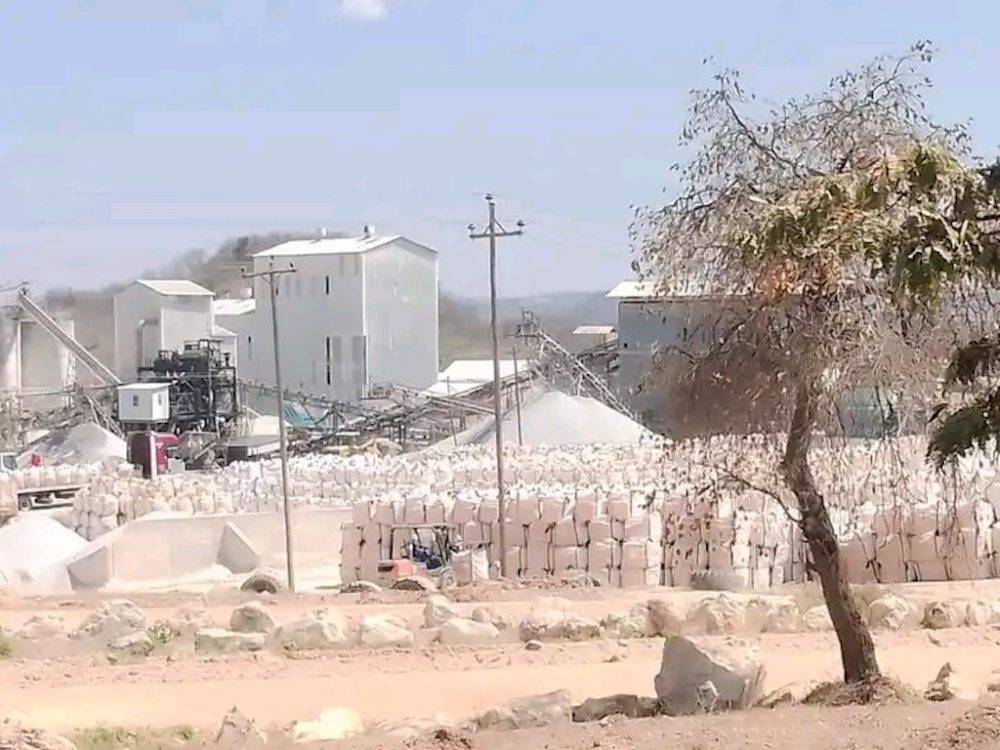
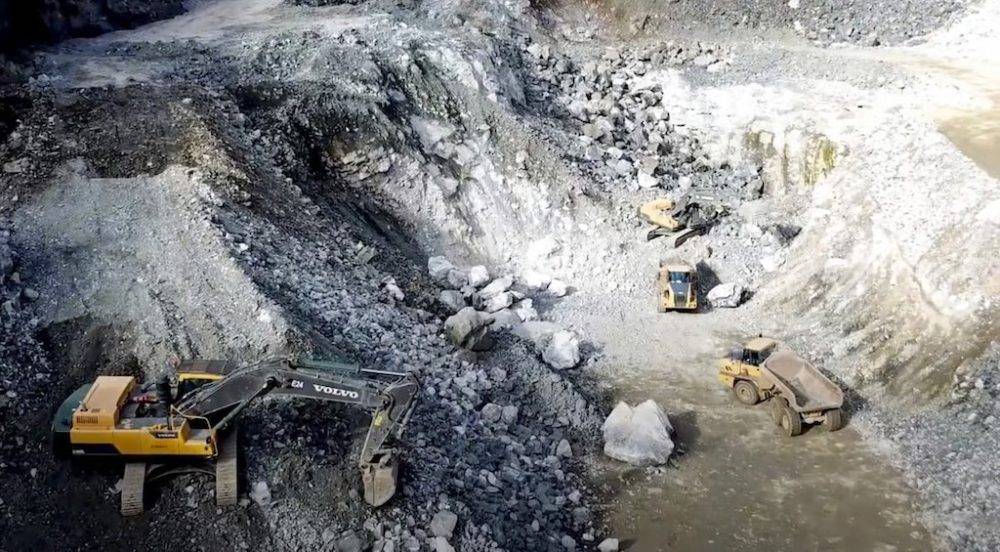
Bikita Minerals
Bikita Minerals is listed among the top five biggest lithium mines in Africa, by output. It holds the world’s largest known lithium deposit, at about 11 million metric tonnes.
Chinese company Sinomine Resource Group acquired Bikita Minerals, previously controlled by African Minerals Ltd, for$180 million in January 2022, according to NewsDay. Sinomine was founded on June 2 1999 and is headquartered in Beijing, China.
Milton Muusha, the Masvingo provincial head of the Environmental Management Agency (EMA), said in addition to the $5 000 fine it imposed on Bikita Minerals last year, the agency had ordered Sinomine to clean up the Matezva Dam within a month and the mine had complied with this order.
“Communities benefiting from the dam were notified of the spillage,” he said in an emailed response to questions. “Bikita Minerals were ordered to put in place a pretreatment plant and they introduced an emergency holding pond to contain all emergency spills. They also put in place a recovery method on their effluent and are now pumping it back into the plant from the pretreatment plant.”
Asked what type of toxins had spilled into the dam, Muusha said lab tests of samples were unable to determine the type of chemicals discharged. In the course of this investigation, this reporter also took water samples from the dam to a private lab for testing, but could not establish the toxins.
Bikita Minerals spokesperson, Collins Nikisi, denied that the spillage was toxic.
“We had a spillage from the water reservoir and we quickly attended to the problem. The spillage lasted for a few hours and the mine was fined by EMA. There were no chemicals that spilled into the dam. The spillage was not in any way harmful, as backed up by tests carried out,” said Nikisi.
He however did not share the test results with this reporter.
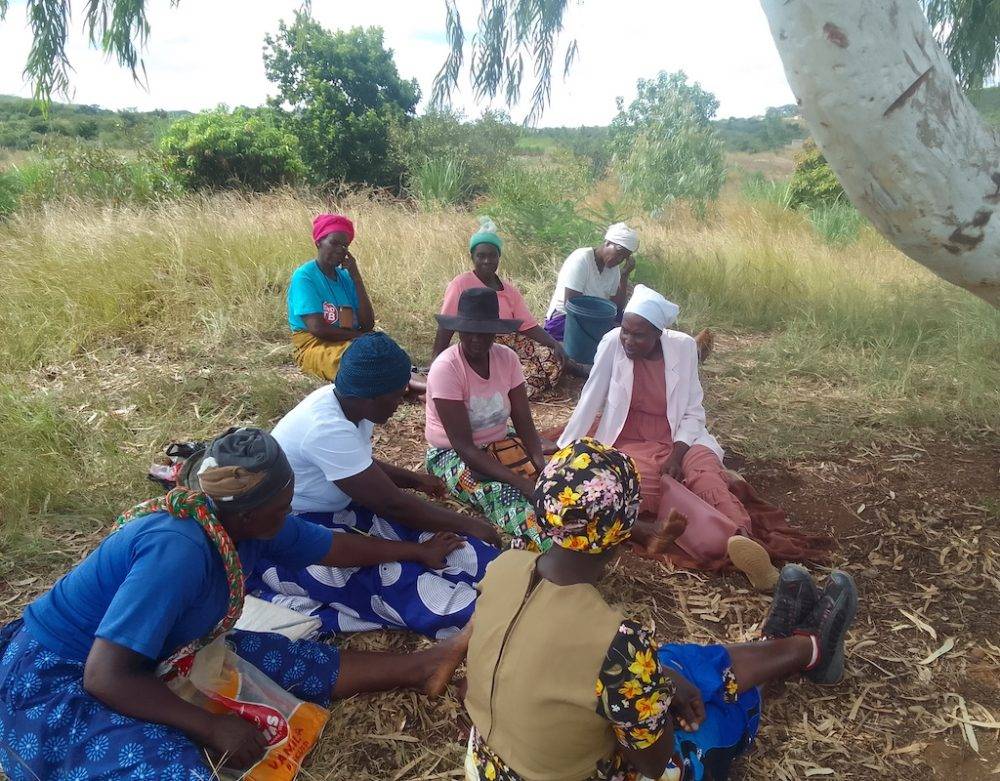
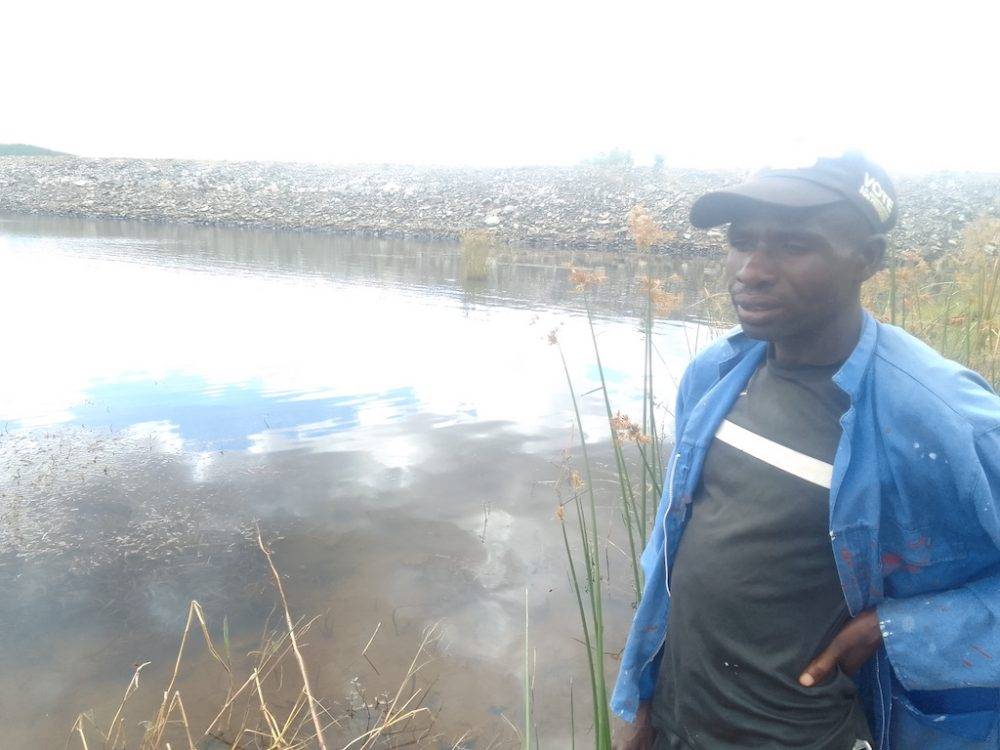
Irrigation scheme
Apart from the vanishing fish and the disturbed aquatic ecosystems and biodiversity in the dam, members of the nearby Matezva irrigation scheme allege their crops started rotting after the spillage.
At first they could not pinpoint the cause. It only made sense to them when they heard that the mine had discharged effluent into the dam, said Emma Madakadze, secretary of Matezva irrigation scheme.
“We had planted potatoes and beans and did not harvest anything as the plants were rotting. Even the few that we harvested were just rotting. We thought it was the heatwave,” Madakadze said.
“We raised the complaint with our agricultural technical extension [Agritex] officer but he also did not know the cause. We heard one farmer’s sheep got affected after they drank the water from the dam. We started connecting the dots when we heard of the spillage.”
Matezva irrigation scheme has 50 members and each plants one hectare. They sell their produce, which they plant all year round, at Nyika growth point and in the surrounding communities.
“Water from the dam is our lifeblood. We have managed to raise our children, pay fees and buy food from proceeds of sales from the irrigation scheme. Despite successive droughts we experience here, we remain food secure and get a nutritious diet from the crops we plant,” Madakadze added.
Another member of the irrigation scheme, Elvis Mupinga, said since it started in 2012, they had not experienced a challenge with their crops like the one they had last year. “That was the first time we had problems with our crops. We can now link the rotting of our plants and the produce to the contaminated water from the dam,” he said.
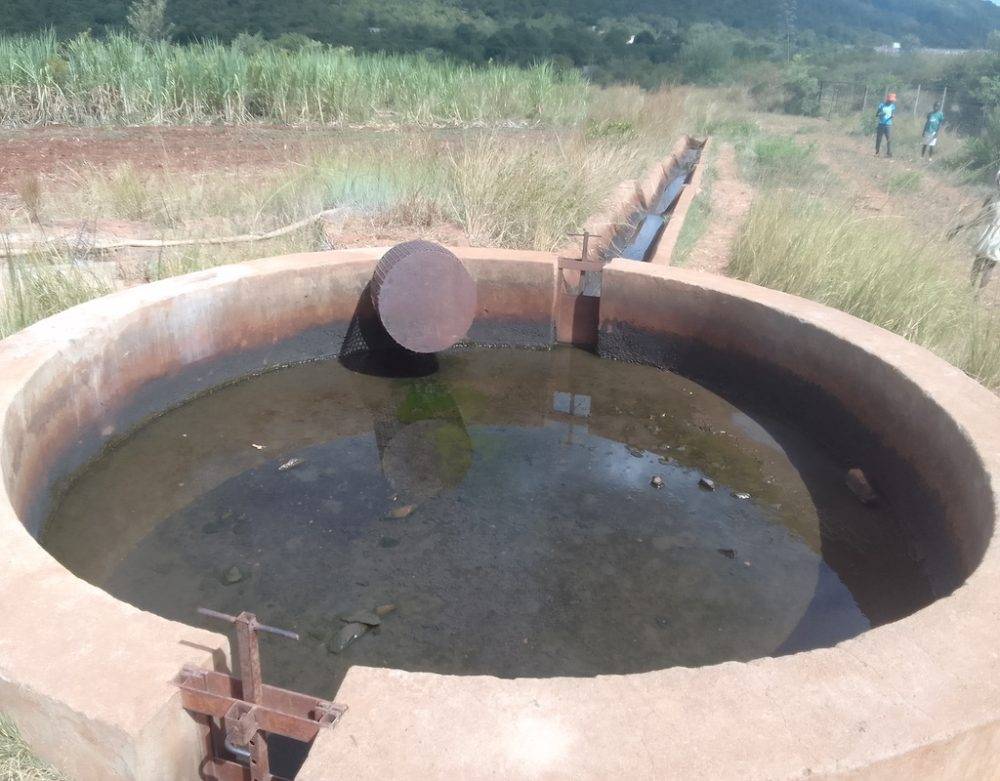
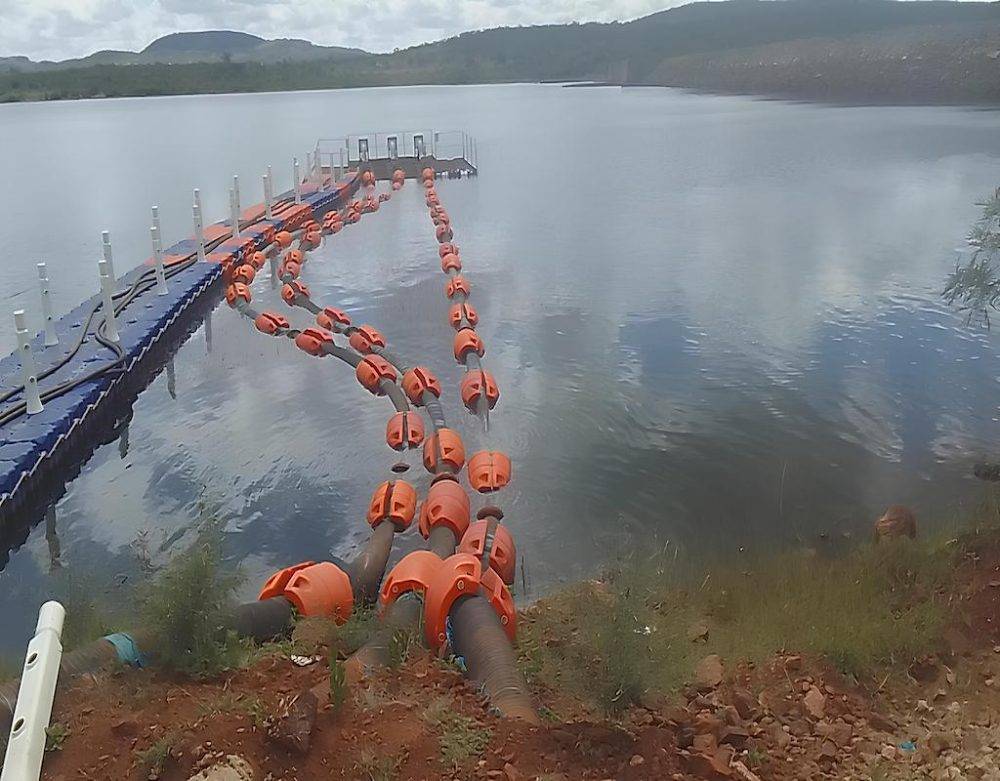
Water levels
The Matezva irrigation members also complained that Bikita Minerals is drawing large volumes of water at an unsustainable rate and that they fear they will not have enough water for their crops to last them throughout the year.
“The water flows by gravity from the dam to our irrigation scheme. But now we can no longer abstract water from the dam because the mine is drawing large volumes at an alarming rate and the levels are dropping. Unlike the mine, we do not have a pump to get water from the dam,” said Mupinga.
“We want to plant winter wheat but we do not know if the water will be sufficient. We are afraid that if we plant wheat, the water will not be able to flow by gravity. Last year, the water levels had dropped dismally and our maize wilted because of shortage of water.”
Alfonce Zimindi, a local community member, said last year the water levels got so low that some cattle got trapped in shrinking ponds and mudflats trying to drink water.
“The mine is pumping out the water like never before and it is slowly getting depleted. You can check with the marks at the dam wall. This is a crisis in the making. We need the water for our gardens and domestic uses. Last year, we had to get further into the dam from the shores to access the water,” said Zimhindi.
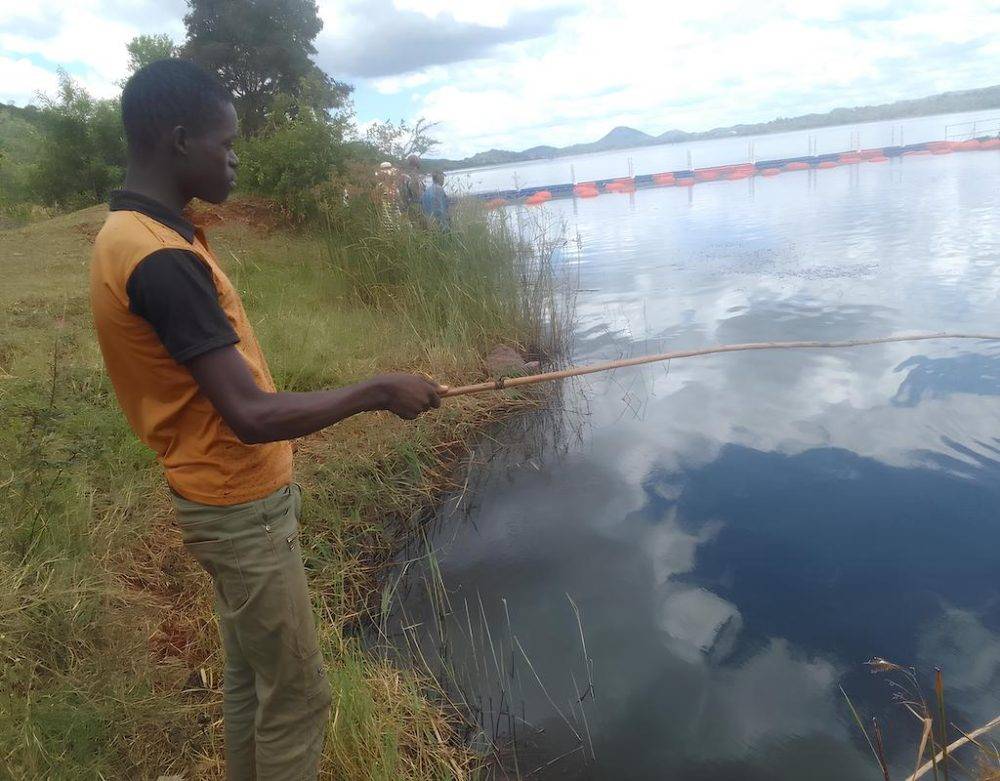
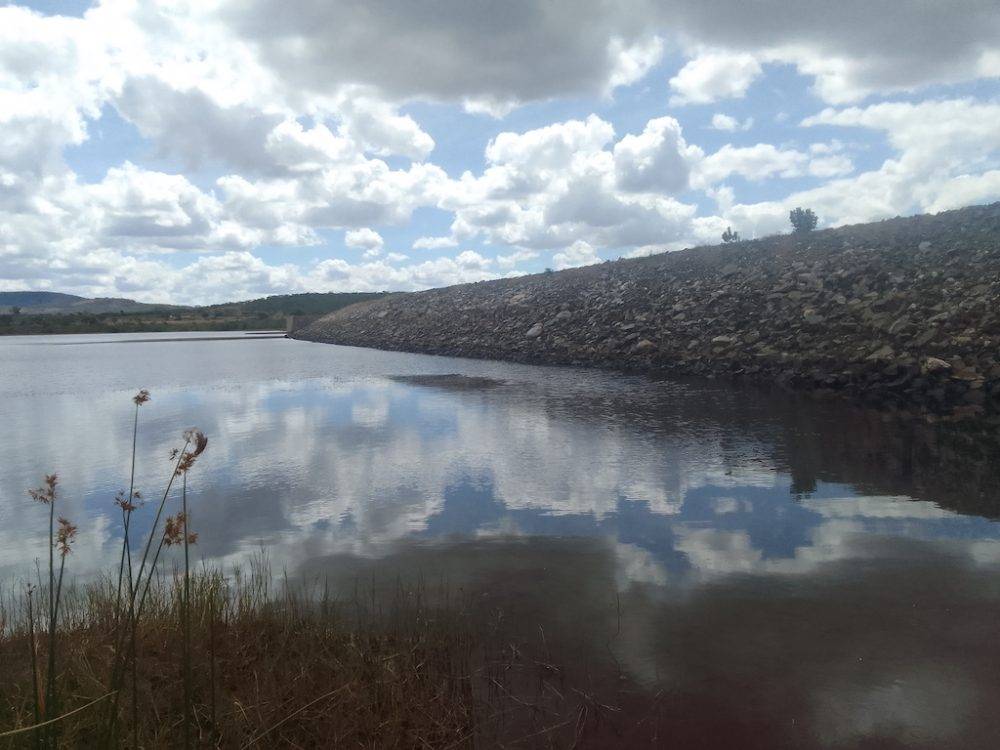
Confidential information
The extraction and processing of lithium requires large amounts of water — about 1,9 million litres per metric ton of lithium, according to one energy industry expert.
Asked about the accusations that Bikita Minerals is extracting unsustainable amounts of water from the dam, company spokesperson Nikisi failed to respond.
The Zimbabwe National Water Authority (Zinwa), custodian of all water bodies in the country that also governs its use, sprang to the defence of Sinomine.
“Allegations that Bikita Minerals is drawing large volumes of water from Matezva Dam to the detriment of other water users are not true,” said Marjory Munyonga, the authority’s corporate and marketing officer. “Regardless of the volumes being drawn by the mine, Matezva Dam still holds sufficient water to meet the needs of the mine, the irrigation scheme abstracting water from the dam, as well as other downstream users.
“It is also untrue that last season the mine drew water from the dam to unsustainably low levels. As of 16 October 2023, when the 2023-2024 rainy season opened, Matezva was 96,7% full and closed the season at 97,4%. If, for any reason, there are communities failing to access water from Matezva Dam, they can always approach their relevant Zinwa service centre or catchment offices for assistance,” she added.
Munyonga refused to share the Matezva dam water readings from January last year to the present to show fluctuations in water use, as well as the water being abstracted by Bikita Minerals from the dam.
“Monthly abstraction records by the mine constitute confidential client information which Zinwa cannot share with third parties. The same applies to the concerned client’s monthly allocation or the volumes covered in their water abstraction agreement with Zinwa,” Munyonga said.
In response to a freedom of information request about the environmental impact assessment report for Bikita Minerals’s processing plant, the EMA’s Muuusha said the agency is continuously monitoring the efficiency of the methods being used during the environmental impact assessment (EIA) audits.
“Bikita Minerals submitted an EIA document for review of their spodumene plant on 09/06/2022. The EIA certificate was granted on 16/06/2022 and expires on 15/06/2024. The audits being conducted allow EMA to point out areas where the mine is no longer operating within the scope of their EIA. The agency is therefore able to order corrective measures to be done.
“Accidental spillages, which were noticed, had not been anticipated but corrective measures have since been put in place,” Muusha said.

A powerful company
Sinomine has strong links with the government, which values lithium mining and in 2022 banned the export of raw, or unprocessed, lithium in an attempt to thwart artisanal miners digging up and taking it across borders, according to a Reuters report.
In November 2023, after the Matezva Dam spillage, President Emmerson Mnangagwa hailed Bikita Minerals for setting up a spodumene and palatine processing plant for the mined raw lithium.
“I commend Sinomine Resource Group for taking heed of my government’s call for beneficiation and value addition of lithium ores by investing over$300 million into the various stages of the project. This has contributed to the realisation of our target of attaining a$12 billion mining economy by year end,” he said, according to The Herald.
“The milestone achieved by Bikita Minerals must therefore be emulated by other mining companies to consolidate gains made in the critical sector,” Mnangagwa said. It was the president’s second visit to the mine, after the groundbreaking ceremony for the processing plants in June 2022.
Analysts said the strong ties with the government have made Bikita Minerals a “special case” that is being treated “with kid gloves”.
“The government is in desperate need of investors, especially in the mining sector. Zimbabwe also views China as an ‘all-weather friend’ and no doubt the investors from the Asian giant are given preferential treatment,” said Vivid Gwede, an independent political analyst formerly with the Zimbabwe Human Rights Association.
Obert Bore, investments fellow at the Zimbabwe Environmental Law Association, queried why the government is not being tough on Chinese investors in the mining sector. “It is probably because we have mostly Chinese investments and, if we shun them, then we will be left with no one since we do not have the best of relations with Western nations,” he said.
“The penalties must be stiffer to deter noncompliance by companies and the legal framework should ensure that companies restore the environment. For livelihoods disrupted, there should be alternative resources in place. The government should ensure compliance with environmental laws,” Bore said.
Questions sent to Environment Minister Sithembiso Nyoni and Mines Minister Winston Chitando about whether the penalties imposed on environmental polluters were a sufficient deterrent, and whether they should be ordered to compensate for lost livelihoods, biodiversity and aquatic ecosystems, remained unanswered.
Within days of publishing our investigation, Zimbabwe's Environmental Management Agency issued a statement that it had conducted an environmental audit at Bikita Minerals on 29 and 30 April 2024. Their audit resulted in the issuing of three tickets, all with a maximum fine of level 14, and an Environment Protection Order for the mine to put corrective measures in place. Read the full statement here.
Tatenda Chitagu is a Zimbabwe-based journalist and alumnus of the Oxpeckers #PowerTracker training programme titled The Nexus of Data and Environmental Journalism. The programme and this investigation, part of an Oxpeckers series titled The human cost of energy, are supported by the Fojo Journalism Education Programme, incorporated under International Media Support and Fojo Media lnstitute's Media Nexus Programme 2022-2025 in Zimbabwe, funded by Sida.
Find the #PowerTracker tool and more investigations here.
